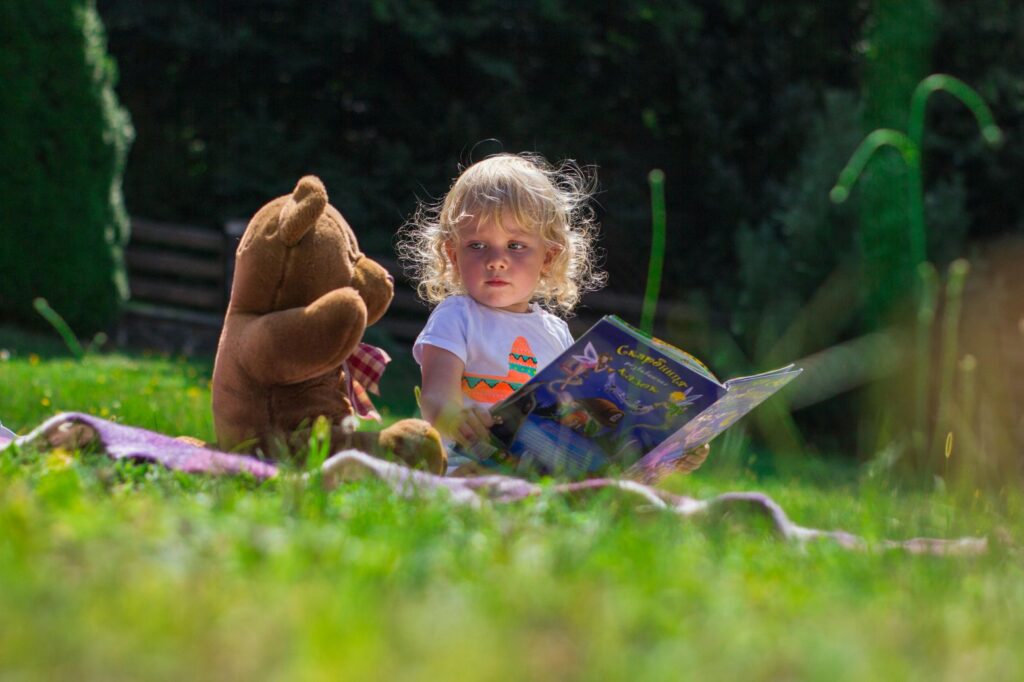Have you ever wondered whether raising a bilingual baby is hard, confusing, or even possible… We have a couple of things you need to know if you want your kid’s first word to be in different languages.
Here is the truth: Babies’ brains are built for language and they are basically tiny sponges soaking up words no matter the language.
By around 6 month old, babies start tuning their brains to the languages they hear the most. That’s why exposing them to early to multiple languages helps a lot, if your goal is to have them speak more than one language.
And although some babies might start speaking slightly later than monolingual babies it’s not because they are confused or having a hard time, even if it happens (it might not), it will be because their brains are juggling a much bigger vocabulary.
Most bilingual kids often surpass monolingual peers in language flexibility later on. And that is just one of the many benefits bilingualism can give your kiddo.

Research shows that bilingual kids have stronger skills in areas like:
- Problem-solving
- Multitasking
- Creativity
- Empathy
So, if you are ready to give this superpower to your baby, here is how to support your baby’s first bilingual words.
First know that you do not have to be a language expert or even fully bilingual to do this. And you can easily help your bilingual baby thrive if you do the following:
Consistency. There are a lot of different strategies for you to try in your family. Some families do One Parent, One Language and other do One home, one language (English outside, Spanish at home). No strategy is better than the other, it really comes down to what works best for your family. Remember that consistent exposure is what matters, not perfection.
Songs, stories, and play. Babies learn through play and repetition —not flashcards or rules.
Rhymes, games, storytime, songs, and cartoons… all of these help build vocabulary naturally.
Don’t stress about your mistakes. Language learning is messy and that is okay. Celebrating every little thing will take the pressure off having to be perfect.
Make it normal. The more you show your kid the language you want them to speak and treat it as normal as you do everything else, the more your kid will understand it as normal.
And I know what you might be thinking, all of this sounds great but what if I don’t speak the second language?
Good news: You don’t have to!
You can learn alongside your baby and honestly that is a beautiful bonding opportunity. Remember that the key to success is consistency, even if you just do it for a couple of minutes during the day, your baby might surprise you with how much they actually pick up.
And if you ever feel like you need help you can always reach out to TruFluency Kids Spanish, an online Spanish Immersion school with native speaking teachers who teach Spanish through songs, storytelling and silliness (doing half the work for you already).













